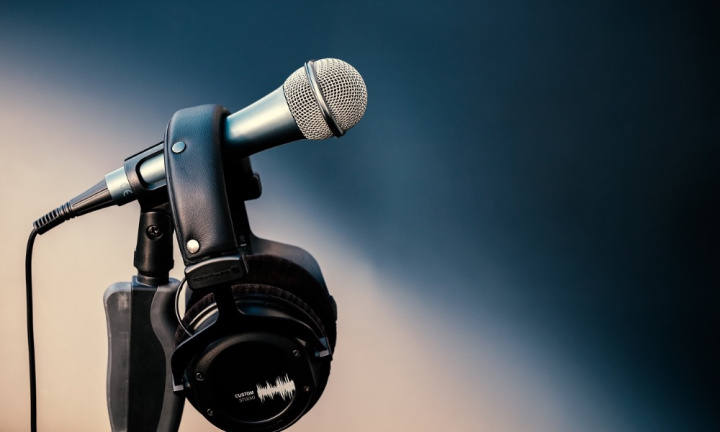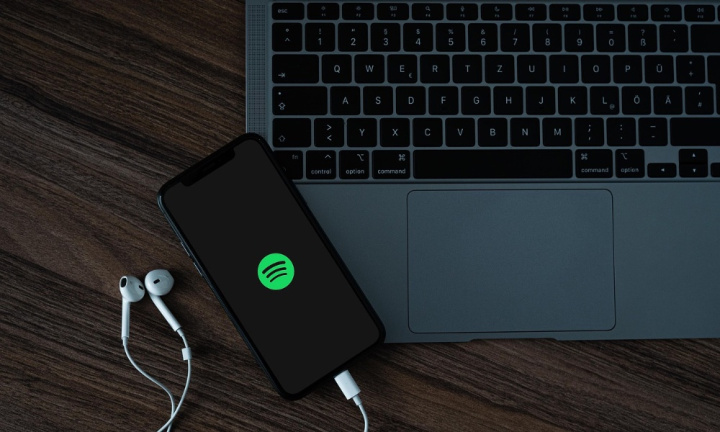Why Are Podcasts So Popular And How To Become A Podcaster
Every year podcasting is becoming an increasingly popular Internet trend. Today, many podcasters gather a multi-million audience of listeners and even interview presidents, and yet quite recently this technology was known only to a narrow circle of enthusiasts.
We decided to devote our next article to podcasts. From it you will learn about what podcasts are, how, where and when they appeared, what podcasting formats exist, how to listen to them, and what is the secret of their popularity. We will also tell you about what services and programs you can use to launch podcasts and what mistakes beginner podcasters most often make.
What are Podcasts in Simple Terms
A podcast is an audio recording on a specific topic that has been previously recorded and posted on the Internet. It is a cross between internet radio and audio blog. Basically, podcasts are the modern digital version of traditional radio that you can download or listen to online whenever you want from desktop or mobile devices. An important feature of podcasts is the ability to subscribe to them (free or paid)
In 2004, the first podcast processing software appeared that allowed you to automatically download audio files from the Internet via an RSS feed, and then listen to them on your computer or MP3 player. At the same time, the words "podcast" and "podcasting" were created from a combination of the words iPod and broadcasting. By the way, it was the famous Apple audio player that ensured such a rapid popularization of podcasts, since they could be listened through not only the computer, but also in any other place using the iPod.

Reasons for the Popularity of Podcasts
There are three main reasons for the rise in popularity of podcasts.
- Variety of content. Podcasting is a truly versatile format suitable for publishing a wide variety of content for audio recording. Interviews, reviews, news releases, educational programs, audiobooks, conversations, stories and much more - the format provides a wide space for creativity. There are a large number of podcasts on any topic in demand: politics, travel, art, technology, etc.
- Saving time. Podcasts let you get interesting and useful information anytime, anywhere - on the way to work, during your daily tasks, on your morning run, and more. You can listen to podcasts in whole or in parts, thanks to the option of timecodes and show notes. They give listeners the opportunity to pre-check the list of topics in the release, their brief descriptions and timing, and then quickly jump to the desired part of the recording. You can also listen to podcasts faster by increasing the playback speed. Also, you can use podcast tools for listening to and recording podcasts.
- Convenience for the listeners. Podcasting is a lot like internet radio, but in a much more flexible and user-friendly format. With it, listeners will not miss an important and interesting program, because it will be automatically downloaded to their smartphone and available at any time. They are made even more convenient by modern applications for podcasts listening (podcast clients) with a set of useful functions, we will talk about them in the next section of the article.
Key Podcast Clients and Their Functions
Podcasting has grown in popularity since the release of Apple Podcasts in 2012. Today it is the most famous and popular service for listening to podcasts, as it is installed by default on all Apple devices (iPhone, iPad, Mac). For Android devices, there is a regular application called Google Podcasts.
In addition, a number of other podcast clients are available today - not as popular as the apps from Apple and Google, but no less convenient and functional. Among them are Spotify, Pocket Casts, Overcast, Castbox, Castro, etc.
The functionality of most of the listed clients allows users to subscribe to podcasts, manually or automatically download their episodes and listen to podcasts offline, receive notifications when new episodes are released, and set the playback speed. They can also help you create episode lists, increase the voice volume of the hosts, skip screensavers, cut pauses in recordings, and also sync podcasts between devices.

How to Create Podcasts. Common Mistakes
One of the benefits of podcasting is that it can be created not only by professionals but also by amateurs - and on a regular basis. This does not require any special skills, expensive equipment or complex highly specialized software, because podcasts were originally considered a kind of amateur radio.
Typically, the podcasting process includes the following steps:
- The choice of topics and the search for ideas. Initially, you need to decide on what you will tell your audience. On the Internet, you can now find popular interesting podcasts on literally any topic, the main thing is that you can offer your listeners truly original and rich information that will arouse their interest.
- Preparation of software and equipment. In general, you only need three things to record podcasts: a computer or laptop with internet access, a microphone, and audio editing software. If desired, you can use additional devices and filters to improve the quality of the recording. Alternatively, you can dispense with a computer and microphone by recording and publishing podcasts via a smartphone or tablet with a dedicated application (such as Speaker, etc.).
- Recording and editing. Podcasts can be recorded using both software and hardware, and online telephony is used to record the conversations of remote interlocutors. During editing, podcasters determine the order of the audio tracks and their overlays, break the recording into timecodes and chapters, prescribe shountes (text blocks describing topics), remove pauses, noises and interference, add background music, etc.
- Publication. Ready-made podcasts can be posted both on your own sites or blogs, as well as on special hosting sites for audio content, which are called podcast terminals. They are a form of social media and provide automated podcast downloads, update subscriptions, and a number of other options.
Some of the most common mistakes beginner podcasts make are:
- Lack of strategy. The best podcasts with many subscribers not only offer interesting and relevant content, but also have a specific goal and development strategy. When creating a new podcast, it is worthwhile to clearly define your target audience, topic and nature of the content (entertaining, educational, inspiring, etc.), and draw up a content plan.
- Monotony of content. Even the most interesting and informative, but monotonous podcast will tire the audience over time. To avoid this mistake, we advise you to give listeners different topics and content formats, alternating between reviews, interviews, conversations, analytics, life stories, etc.
- Poor content or sound quality. Nobody likes hack, so aspiring podcasters should get serious about preparing, recording, and editing their content from the start. Podcasts should by no means be a complete improvisation, it is very important to work out the topic in advance, draw up a release plan, collect reliable information that is interesting on the topic or about the interlocutor before the interview. Professional editing of the recording is no less important - not everyone will want to listen to even a very interesting program with terrible sound quality.
- Unwillingness to cooperate. Focusing on your own content and audience is good, but only if it doesn't grow into obsession. For continuous development, you need to constantly experiment, look for new ideas and formats, and attract new listeners. Collaborations with other podcasters, bloggers, or other media personalities will come in handy for this.

Useful Services for Podcasters
Nowadays, there are several universal services for podcasters that combine many functions at once: they provide storage-hosting for audio recordings and send their RSS links to all popular podcast directories.
Spotify's Anchor service offers free unlimited audio hosting and import of recorded podcasts to all major themed services and apps. A number of statistics and analytics options, tools for attracting new listeners, monetization tools and a built-in podcast editor are also available here. You can offer podcasts to the the audience for free or by a paid subscription; there are donations and advertising collaborations.
The Castbox service provides a wide range of options for both podcasters and listeners. Among them are unlimited and free audio hosting, tools for analyzing podcasts (subscribers, streams, downloads, etc.), the ability to share and comment, a notification system, etc.
Another useful service for podcasters is Google Podcasts Manager, which contains a number of useful analytics tools. It can help you track statistics for each episode in real time, get information about audience preferences, get recommendations for the development of podcasts and attract new listeners through Google services.
Conclusion
Podcasts and podcasting are becoming more massive and popular Internet trends every year. They help to gather a large audience and promote various knowledge, thoughts and ideas among it without any special technical background. For listeners, podcasts are becoming an excellent opportunity to receive useful and interesting information at any time and place, listening to it through a smartphone.
Today, there are a large number of useful services on the Internet for both listening and recording podcasts. And the variety of content in this area will help any user to find for themselves the optimal selection of podcasts for all occasions.
Time is the most valuable resource in today's business environment. By eliminating routine from work processes, you will get more opportunities to implement the most daring plans and ideas. Choose - you can continue to waste time, money and nerves on ineffective solutions, or you can use ApiX-Drive, automating work processes and achieving results with minimal investment of money, effort and human resources.

